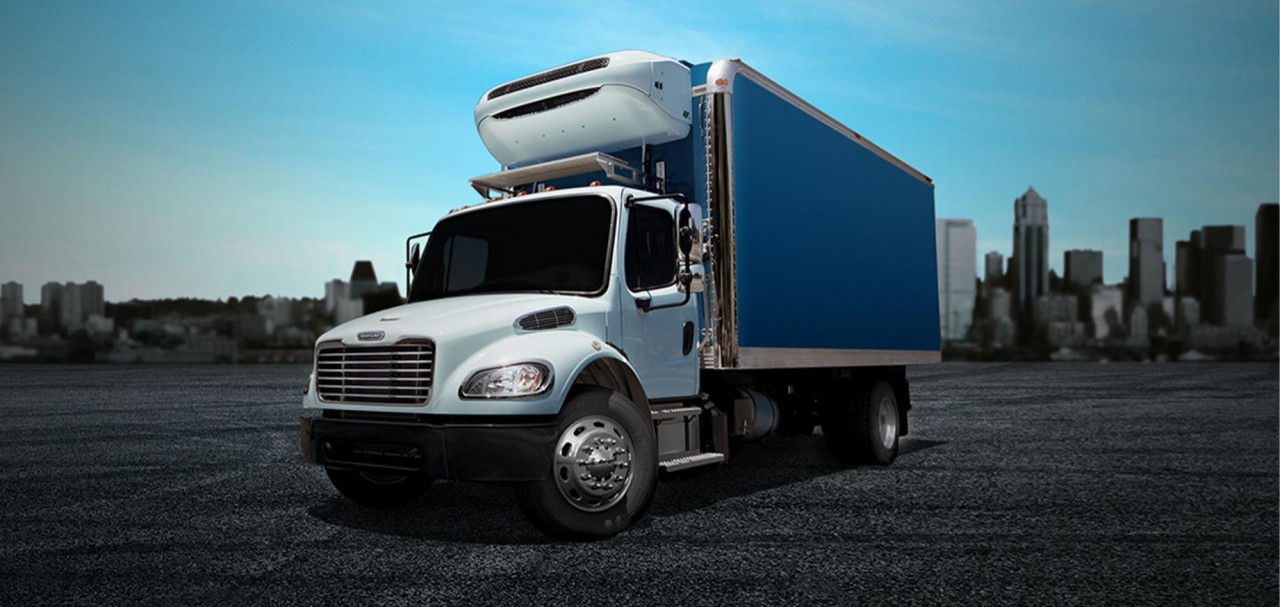Innovations in refrigerated transport: enhancing efficiency and reliability

Introduction
Refrigerated transport, commonly referred to as the “Cold chain,” plays a pivotal role in ensuring the safe and reliable delivery of temperature-sensitive goods, such as food, pharmaceuticals, and chemicals. In recent years, the logistics industry has witnessed remarkable innovations aimed at enhancing the efficiency and reliability of refrigerated transport. These advancements not only improve the quality and safety of products but also contribute to reducing waste and environmental impact. In this article, we will explore the latest innovations in refrigerated transport that are transforming temperature-controlled logistics.
1. Temperature monitoring and control systems:
Innovations in temperature monitoring and control systems have revolutionized cold chain logistics. These systems allow real-time tracking of temperature and humidity conditions within transport containers. They provide alerts and notifications to operators if there are any deviations from the desired range.
– data-driven decision-making: with the help of iot (internet of things) sensors and connectivity, operators can access a wealth of data, enabling them to make informed decisions about route optimization, load consolidation, and preventive maintenance.
– reducing food waste: the european commission estimates that improved temperature monitoring can reduce food waste by 20%, which is a significant contribution to sustainability.
2. Energy-efficient refrigeration technologies:
Energy-efficient refrigeration systems have gained traction in refrigerated transport. Innovations in compressor technology, insulation materials, and refrigerants have made refrigeration units more eco-friendly and cost-effective.
– eco-friendly refrigerants: the transition to environmentally friendly refrigerants, such as hydrofluoroolefins (hfos) and natural refrigerants like carbon dioxide (co2) and ammonia (nh3), has reduced the carbon footprint of refrigerated transport.
– lower operational costs: energy-efficient refrigeration systems not only reduce emissions but also result in lower operational costs for carriers, making temperature-controlled logistics more economically viable.
3. Solar-powered refrigeration:
Solar-powered refrigeration units are gaining popularity as a sustainable solution for refrigerated transport. These systems harness solar energy to power the refrigeration units, reducing the reliance on traditional fuel sources.
– environmental benefits: solar-powered refrigeration reduces greenhouse gas emissions and reliance on fossil fuels, contributing to a greener and more sustainable logistics industry.
– cost savings: over time, solar-powered refrigeration systems can provide substantial cost savings, as they reduce fuel and maintenance expenses.
4. Advanced insulation materials:
Innovations in insulation materials have led to improved thermal efficiency in transport containers. Vacuum-insulated panels (vips) and aerogels, for example, offer superior insulation properties compared to traditional materials.
– temperature stability: advanced insulation materials help maintain a stable internal temperature, reducing temperature fluctuations and the risk of spoilage.
– space optimization: these materials allow for thinner insulation layers, optimizing cargo space and increasing transport capacity.
5. Predictive analytics and artificial intelligence (ai):
Predictive analytics and ai-driven solutions are being used to optimize cold chain operations. Machine learning algorithms can forecast temperature changes, equipment failures, and potential supply chain disruptions.
– enhanced reliability: ai-driven systems enhance reliability by identifying potential issues before they lead to critical failures, minimizing disruptions in the cold chain.
– optimized routing: predictive analytics can help carriers choose the most efficient routes and delivery schedules, reducing energy consumption and costs.
Conclusion
Innovations in refrigerated transport are transforming temperature-controlled logistics, making it more efficient, reliable, and sustainable. From advanced temperature monitoring systems to energy-efficient refrigeration technologies, these innovations are reshaping the way temperature-sensitive goods are transported around the world. As the demand for cold chain logistics continues to grow, the adoption of these advancements will play a crucial role in ensuring the safe and efficient delivery of products while reducing environmental impact and costs. The future of refrigerated transport is undeniably marked by technological progress and a commitment to sustainability.







